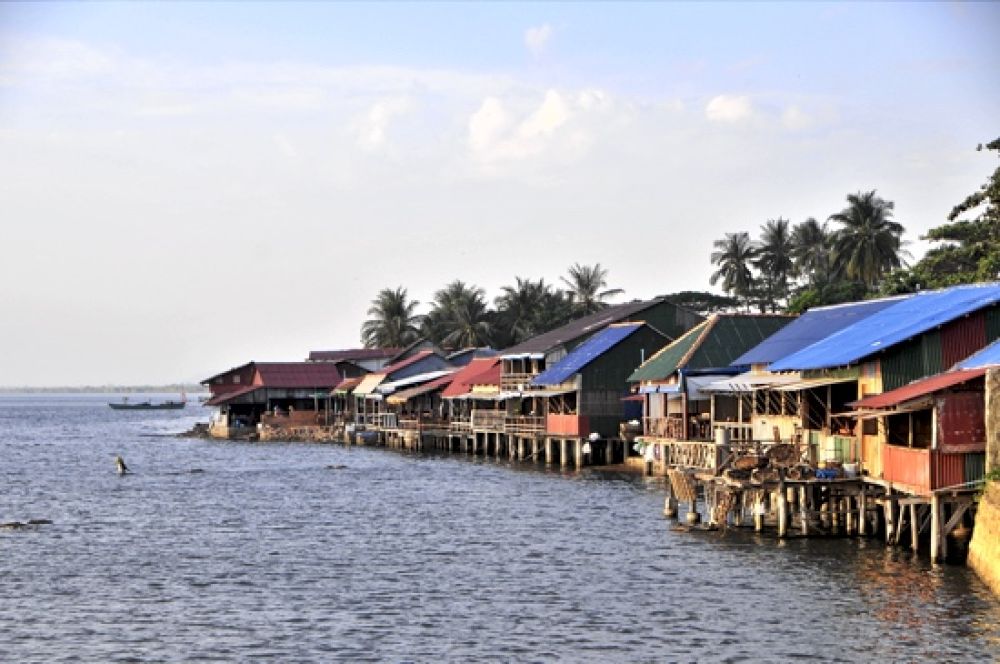

The charming coastal town of Kep in Cambodia, located on the country's southern coastline, has been synonymous with its delectable seafood market for decades. Known for its serene natural beauty, Kep was originally established as a colonial retreat for the French elite in the early 20th century. With its glorious villas and tranquil beaches, it soon became a popular getaway for Cambodia's own royals and aristocrats, particularly in the 1960s during the reign of King Norodom Sihanouk.
Despite the turbulent years during and after the Khmer Rouge regime, which saw Kep fall into neglect, the town has gradually re-emerged as a tourist destination since the 1990s. With peace and stability returning to the region, the picturesque setting and plentiful seafood drew visitors once more. The Kep Seafood Market, often known simply as the 'Crab Market', became a focal point not just for its variety of fresh seafood but also as a symbol of the town's revival.
Kep Seafood Market is more than just a place to find fresh marine delicacies; it's an immersive cultural experience. The market buzzes with activity as fishermen bring in their catch and vendors offer an array of seafood, from fish to squids, prawns, and the famous Kep crabs. Travelers from around the world come to sample freshly cooked dishes right by the sea and explore the local way of life.
In recent years, the tourism industry in Kep has flourished, and with it, the Seafood Market has adapted to accommodate a more diverse group of visitors. Sustainable tourism practices are becoming more common, with a focus on preserving the environment and the local communities' way of life.
Eco-tourism is now at the forefront, with many travelers seeking authentic experiences that contribute positively to the local economy. Accommodations such as boutique hotels and eco-friendly guesthouses have become popular, offering immersive activities that promote environmental awareness and cultural sensitivity.
Food tourism is also on the rise, with Kep Seafood Market being the perfect destination for food enthusiasts looking to explore traditional Khmer cuisine. Cooking classes and food tours centered around the market's offerings connect visitors with local chefs and fishermen, providing a deeper understanding of the region's culinary heritage.
Adventure tourism ties in neatly with the natural landscape of Kep, as visitors enjoy activities such as hiking in Kep National Park, island hopping to nearby islands such as Koh Tonsay, and exploring the limestone caves in the surrounding areas.
Today, Kep continues to build its reputation as a premier gastronomic and eco-tourism destination, with the Kep Seafood Market remaining at the heart of its appeal. As tourism evolves in Cambodia, Kep and its famed market are expected to develop further, attracting travelers in search of sun, seafood, and the simplicity of a coastal Cambodian lifestyle.